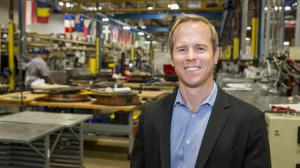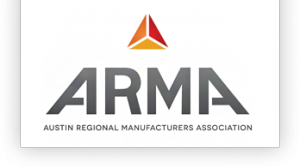How to Make It in America: An Interview with the Austin Regional Manufacturers Association (ARMA) Executive Director
We interviewed Ed Latson, ARMA’s (Austin Regional Manufacturers Association) Executive Director, to discuss the future of manufacturing in America.
Asia picked up a lot of American manufacturing initially, because of labor costs. However, if you factor in transportation and quality issues, it ends up not being such a good deal.
AUSTIN, TEXAS, UNITED STATES, December 7, 2016 /EINPresswire.com/ -- ARMA (Austin Regional Manufacturers Association) is a non-profit organization based in Austin, TX, on a mission to ‘be the voice and advocate of manufacturing in the Austin metropolitan are.’ Formed in 2013, with just eight members, they have grown from strength to strength and currently have a membership of over 165. We met with Ed Latson, ARMA’s Executive Director and one of its founding members, to find out more.— Ed Latson
Let’s start with a short bio and a brief history of how you started ARMA.
My background is in consulting and business development. Prior to working with ARMA, I was the director of marketing for a group called TMAC (Texas Manufacturing Assistance Center).
TMAC is non-profit, and receives a grant from the Department of Commerce to provide consulting services to small and medium-sized manufacturers. The Department of Commerce recognized the strategic importance of manufacturing in the United States, so they created the MEP (Manufacturing Extension Partnership) program to provide expertise on operational efficiency, quality management, and other strategic resources. The affiliate program in Texas was TMAC.
Then my wife got a couple of international assignments, and we moved overseas to live in Ireland and Malaysia. When I got back two years later, I was looking for a project. I knew there wasn’t a manufacturing association in Austin, so I proposed it to my old group, and they supported the idea with funding.
We started ARMA four years ago, as a way to bring manufacturers together and solve problems, as well as making sure companies are forming the local relationships they need to strengthen their business.
What does ARMA do now?
Since we’re a start-up, initially we were limited by bandwidth, but four years into it and we’ve grown tremendously. We’re at 165 members now, and our three focuses are on Advocacy, Workforce Development, and Networking.
Under Advocacy, we’re out trying to influence policymakers and make sure they know what’s important for our businesses to survive. We’re also promoting manufacturing to make sure that people in the region understand the kind of businesses that are here, understand that manufacturing is hi-tech –not old world smokestacks and dirty jobs. We’re talking about people who make cell phone chips, IV bags, gas pumps – some really advanced products. Some great customized furniture as well for your office – I’m sure you guys can speak to that – but there are some really solid companies in the Austin area.
For Workforce Development, we’re looking at the skills gaps in the community – what companies need out of the labor pool to succeed and grow. We partner with groups like ACC, Texas State Technical College, and other training providers to make sure that they are focused on our needs.
Then with our Networking, we bring people together to make sure peer relationships are being built that can support people’s professional development.
Awesome. Out of curiosity, what’s something that you see as a major gap in the workforce development?
I hear a couple of things a lot. Welders are always one of the top ones. Another one is machinists, and I’m hearing more and more about maintenance technicians as well. Those are the three that we’re focused on.
Since oil and gas have turned down over the past couple of years, there are more machinists and welders coming this way from Houston and some of the big oil production areas, but sometimes some of the skills are a little bit different and don’t always translate, so we’re trying to increase the skills in that area.
...
Many companies coming from different backgrounds have moved here over the past few years. Can you tell us why they would choose Texas?
I think I’ve talked a little bit about the automotive shift to the south, and that’s certainly driving a lot of it. But when you look nationally at what manufacturers list as challenges, a lot of it is about government regulation and unfavorable tax climate, so they’re really looking to move to Texas to find a more favorable business climate.
That’s probably the biggest reason, but also, geographically, we’re centered in the middle of the country and proximate to Mexico, which is the US’s biggest trading partner. I think there’s huge strength to being in Texas.
What’s the importance of digitalization in manufacturing? Do you think automation and robotics could be the end of unions?
Read more... https://formaspace.com/articles/manufacturing/how-to-make-it-in-america-arma-interview/?utm_source=einpresswire&utm_medium=content&utm_campaign=article-120716
Mehmet Atesoglu
Formaspace
8002511505
email us here




